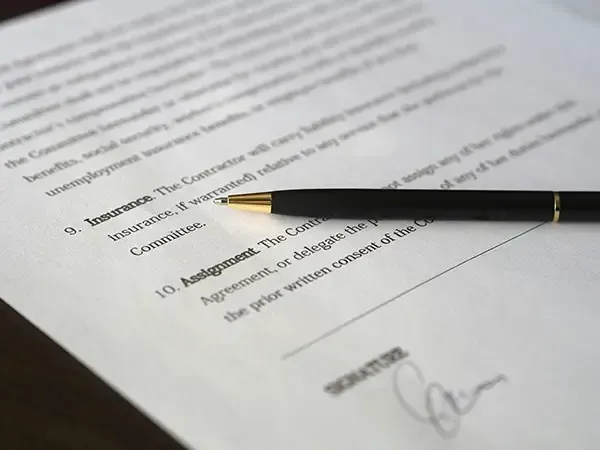Auto-Mechanic Liens in Arizona
Arizona law provides qualified protections for mechanics whom perform repairs on vehicles at the vehicle owner’s request. Those protections are provided by a common law lien, a statutory lien, and a statutory right to treat certain vehicles as abandoned. Each protection, however, is subject to limitations including those meant to protect liens on the vehicle’s title at the time of the repairs (“prior liens”).
The common law provides a garage owner with a lien on a vehicle for the value of the work performed or material furnished during the repair of the vehicle. Beck v. Hy-Tech Performance, Inc., 236 Ariz. 354, 357, ¶ 9, 340 P.3d 433, 436 (App. 2015) (citing Capson v. Superior Court of State of Ariz., In & For Maricopa Cnty., 139 Ariz. 113, 115, 677 P.2d 276, 278 (1984)). In order for the lien to arise, there must be an express or implied agreement between the vehicle owner and the garage owner regarding the performance of the repairs. Capson, 139 Ariz. at 116, 677 P.2d at 279. A dispute related to the value of the work performed or material furnished will not, absent fraud or bad faith, destroy the lien. Beck, 236 Ariz. at 357, ¶ 9, 340 P.3d at 436. However, the lien may not include any towing or storage costs. Capson, 139 Ariz. at 115, 677 P.2d at 278. The lien is also possessory, meaning that the garage owner must remain in possession of the vehicle until the charges are paid in order to maintain the lien. Fishback v. Foster, 23 Ariz. 206, 210-211, 202 P. 806, 808 (1922). The common law lien does not permit the garage owner to sell the vehicle in order to satisfy the lien. Id. at 212, 202 P. at 808.
Similarly, Arizona Revised Statute Section 33-1022.A. provides owners of a garage or repair or service stations (collectively, a “vehicle repair business”) with a statutory lien on vehicles for the value of the work performed or material furnished if the vehicle owner agrees to pay for the repairs. Arizona Revised Statute, Section 33-1022.A. The charges are limited to the value of the parts, labor, materials, supplies and storage provided. Towing charges are not part of the lien.
Arizona Revised Statute Section 33-1023 permits the enforcement of the statutory lien by public sale, if certain requirements are met, and allows the vehicle repair business owner to use the proceeds of the sale to satisfy the statutory lien. Any remaining or excess proceeds from that sale are then to be paid to the owner.
One question that often arises is whether the public sale may take place without the first satisfying all prior liens. The answer is that it should not. That is because the statutory lien does not impair prior liens (e.g., a lender’s lien on the vehicle’s title), unless the owners of the prior liens (e.g., the lenders) were aware of and agreed to the repairs before they began. Arizona Revised Statute, Section 33-1022.B. Allowing the proceeds of a public sale to satisfy the statutory lien without satisfying the prior liens would impair the prior liens by effectively placing the statutory lien ahead of the prior lien.
The limitations placed on the public sale become more obvious when an attempt is made to transfer title to the vehicle after the sale. The Arizona Department of Transportation, Motor Vehicles Division, requires a vehicle repair business owner that has a written or verbal contract for repairs with the vehicle’s owner to apply for a mechanic’s lien by complying with the “Mechanics Lien Requirements” form. That form is available at https://apps.azdot.gov/files/mvd/mvd-forms-lib/48-7810.pdf. The applicant must meet the following key requirements:
- Provide an original or certified copy of a work repair order signed by the vehicle’s owner.
- Obtain a motor vehicle records search to, among other things, verify the name and address of any lienholders.
- Provide a lien release from all lienholders appearing on any title and lien search. For Arizona liens, the release must be signed, notarized, dated, and include the amount of the lien.
- Complete an Auction Sale Certificate, which requires the applicant to certify that there were no liens of record when the mechanic’s work began. That Certificate is available at:
https://apps.azdot.gov/files/mvd/mvd-forms-lib/46-8503.pdf
- Complete a Title and Registration Application, which requires the applicant to identify all lienholders. The form acknowledges that “Lienholder retains an ownership interest of the vehicle…until the loan is repaid”. That Application is available at: https://apps.azdot.gov/files/mvd/mvd-forms-lib/96-0236.pdf
Collectively, the “Mechanics Lien Requirements” prohibit the transfer of title following the public sale unless and until all prior liens have been satisfied. Therefore, no public sale of a vehicle should occur to enforce the statutory lien if unsatisfied prior liens exist.
If no prior liens exist and the vehicle is left at a “repair facility operated for commercial purposes” without a written or oral agreement regarding the performance of the repairs, then the vehicle may be reported as abandoned. Arizona Revised Statute, Section 28-4840.A. Under those circumstances, title to the vehicle may be transferred pursuant to Arizona Revised Statute, Sections 28-4841 and 28-4842. The abandoned vehicle process may not be used instead of the statutory lien process.
Some vehicle repair businesses may consider selling the vehicle without disclosing the existence of, or satisfying, prior liens. Taking that action can prove to be very costly. Misrepresenting facts in order to transfer vehicle titles (e.g., stating that no prior liens of record exist when they do) will likely subject the auto mechanic to punitive damages. Currie v. Dooley, 132 Ariz. 584, 589, 647 P.2d 1182, 1187 (App. 1982) (holding that jury’s award of punitive damages against towing company was proper when towing company made misstatements in order to obtain abandoned vehicle certificate).
If you have any questions regarding auto mechanic liens, please do not hesitate to contact me at kpn@tblaw.com.
Not Legal Advice: Please contact us if you would like to discuss the facts and circumstances of your specific matter. Tiffany & Bosco, P.A. expressly disclaims all liability in respect to actions taken or not taken based on any or all the contents of this memorandum. The information contained herein may not reflect current legal developments and is provided without any knowledge as to the recipient’s location, industry, identity or specific circumstances. No recipients of this content, clients or otherwise, should act, or refrain from acting, on the basis of any content included in this memorandum without seeking the appropriate legal or other professional advice on the particular facts and circumstances at issue from an attorney licensed in the jurisdiction for which the recipient’s legal issue(s) involve. The application and impact of relevant laws varies from jurisdiction to jurisdiction, and our attorneys do not seek to practice law in states, territories and foreign countries where they are not properly authorized to do so.





All Rights Reserved | Kevin P. Nelson
*Kevin is also licensed to practice law in New Mexico, the Navajo Nation, and the Salt River Pima-Maricopa Indian Community (SRPMIC).
The act of visiting or communicating with Kevin P. Nelson, Evan P. Schube, Tiffany & Bosco P.A., or any affiliated attorneys or employees via this website or by email does not create an attorney-client relationship. Communications from non-clients are not subject to client confidentiality or attorney-client privilege.
Further, the articles, discussion, commentary, forms and sample documentation contained in this website are offered as general guidance only and are not to be relied upon as specific legal advice. For legal advice on a specific matter, please consult with an attorney who is knowledgeable and experienced in that area. While the articles on this website accurately describe applicable law on the subject covered as of the date of publication, the law continues to develop with the passage of time. Accordingly, care should be taken to verify that the statutes, case law and regulations described have not changed since the article's publication.
The lawyers listed in this website practice law only in the jurisdictions where they are admitted. This website is regulated by the Arizona Rules of Professional Conduct and Michigan Rules of Professional Conduct.


